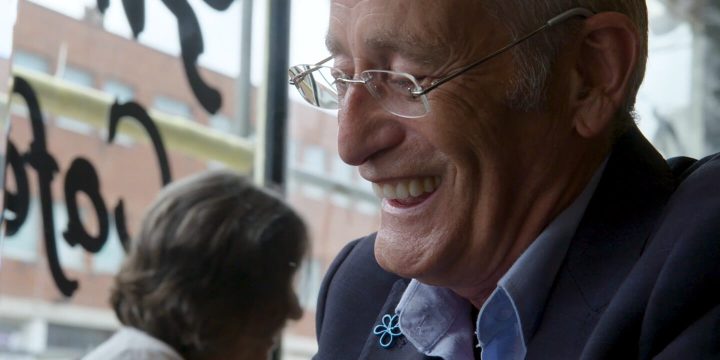
Tech prize, offering new hope to help people with dementia stay independent
Today, a £4.34 million prize fund from Alzheimer’s Society, Innovate UK and Challenge Works – supporting alongside us are The Hunter Foundation, Heather Corrie and Medical Research Council – has been launched to find innovators who can create ground-breaking technologies to help people with early-stage dementia to live independent and fulfilled lives 85% of people
Today, a £4.34 million prize fund from Alzheimer’s Society, Innovate UK and Challenge Works – supporting alongside us are The Hunter Foundation, Heather Corrie and Medical Research Council – has been launched to find innovators who can create ground-breaking technologies to help people with early-stage dementia to live independent and fulfilled lives
85% of people asked by Alzheimer’s Society said they would want to stay at home for as long as possible if diagnosed with dementia. With hospital admissions proven to increase the rate of decline, it is critical to find technology that enables people with dementia to live independently at home.
The devastating condition could affect 153 million by 2050, but relatives of those living with dementia believe that technology can keep their loved one safe at home, with 3 in 5 people saying technology would become more important in the future for managing dementia.
Alzheimer’s Society has united with Innovate UK and Challenge Works to launch a new multi-million-pound competition today – a collaborative partnership of charity, government and UK donors – to find cutting-edge technology that can help people with dementia live independently at home for longer. The announcement comes as more than half of people surveyed who have close family and friends living with the condition say such technology would help them feel less worried about family or friends with dementia.
The new £4.34m Longitude Prize on Dementia calls for innovators globally to use artificial intelligence to create breakthrough technologies that learn from a person living with dementia, adapting and compensating for their condition as it progresses, and help people living with dementia maintain their independence and lead a fulfilling life doing things they enjoy.
In a new survey released today of people with close family and friends living with dementia, 54% of people said they would be less concerned about their relative’s safety if they had technology to help them live independently, and six in ten people believe that technology will become even more important in the future for managing dementia.
Financial contributions to the Longitude Prize from the Foundation, The Hunter Foundation and Heather Corrie will not only go towards a £1 million first prize but will also bolster wider support to give innovators crucial insight and expertise, such as access to data, collaboration with people with dementia, and expert advice on product design and business aspects of the innovation.

“Dementia is a devastating disease that robs individuals of their identity, and, with the numbers of people diagnosed set to continue to rise, we know that getting care and support right is so important for our ageing population, family carers and for everyone who works in social care. That’s why finding innovative technology to revolutionise the day-to-day lives of those living with dementia will provide timely and critical solutions. At CareTech, we have already invested in cutting edge technology which could transform the way we care for people and it will inevitably be a key part of how we all deliver the best care in the future. Our decision to be part of this Prize was a no-brainer and we are excited to see it unleash the potential of talented innovators.”

“We know that people with dementia want to live independent, fulfilled lives doing the things they love and our research shows that people feel that technology could play a crucial part in helping them live the lives they want. Most existing technology for people with dementia is designed to keep them safe, or give their carers peace of mind. But there are huge opportunities to harness cutting-edge technology to help fill in the gaps in their brain and thinking as their condition progresses. “The results showed that many felt technology, like facial recognition, could help them communicate when their speech declines, but would not be available in their loved ones’ lifetime, however amazingly it already exists in the apps and smart technology we use every day. We could repurpose the software of TikTok and WhatsApp to help people put a name to a face or remember a word. The new Longitude Prize on Dementia will open up huge possibilities in this area, making technology work for people living with dementia."

